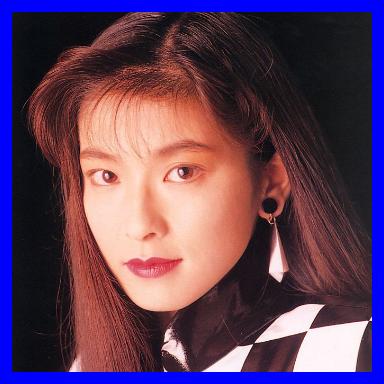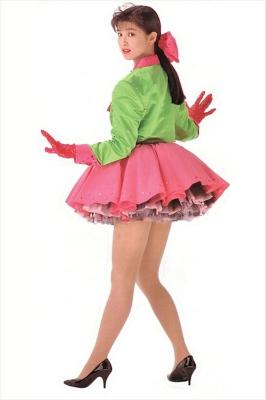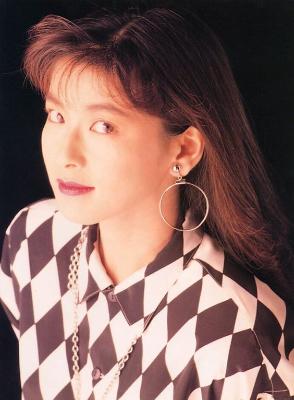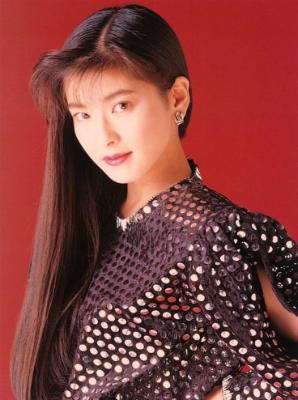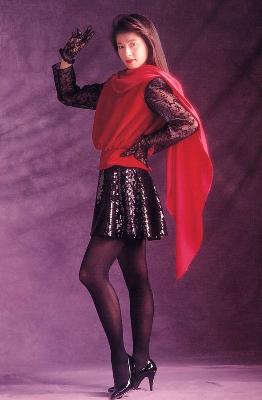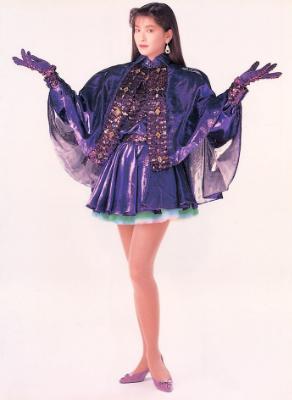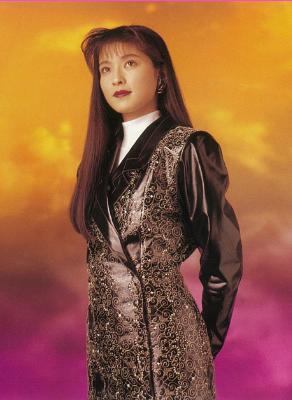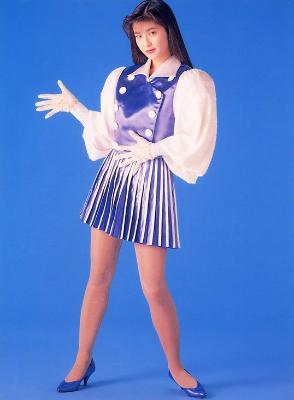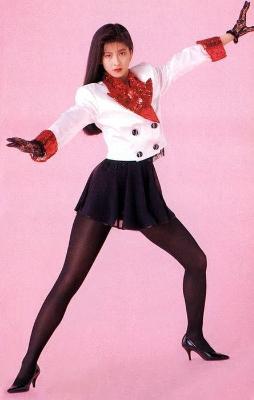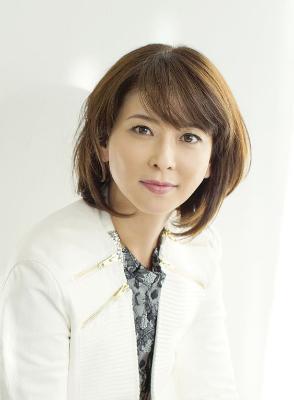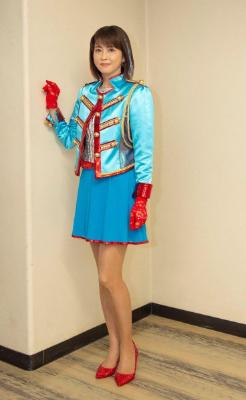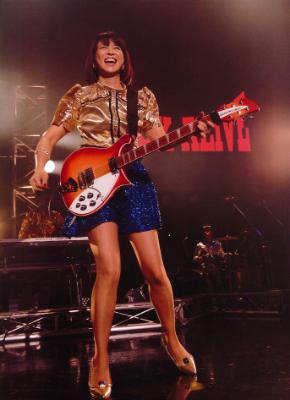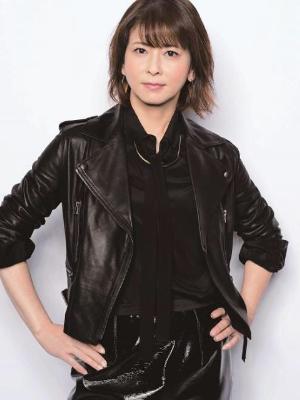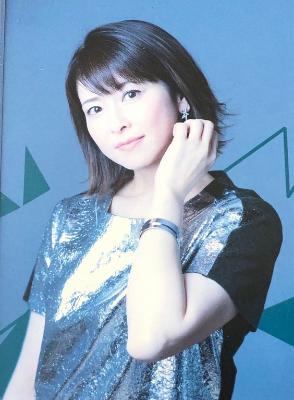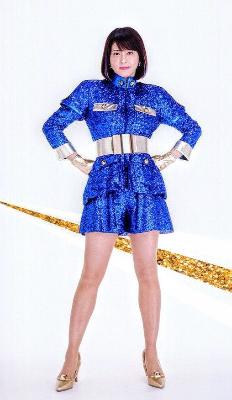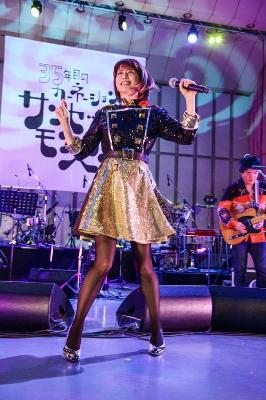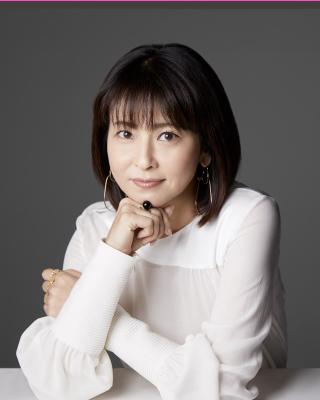CHISATO MORITAKA
Fellow Pink Lady fan Jeremy Lapus wrote to me and suggested I devote a Contemporaries feature to Chisato Moritaka, an idea I quickly warmed up to since I was already familiar with her thanks to Verne Innhel’s Encyclopedia Idollica page. For anyone unfamiliar with Chisato, she was a highly successful and popular idol from the mid 1980’s through the 1990’s. Chisato, called a “Dance Queen” (and an unrivaled one at that) because of her flashy moves got her start in 1987 after winning the Grand Prix of the first Pocari Sweat Image Girl contest, leading to a starring role in a film called Aitsu ni Koishite (I Love You), but it was in the realm of music where Chisato made her mark, not just as a singer, she wrote her own songs, composed music, and even played the drums on most of the tracks along with being skilled on several other instruments, setting her apart from her peers.
Chisato’s musical style, influenced by the likes of Pink Lady (Jeremy told me she’s longtime fan and has a huge collection of PL memorabilia), Janet Jackson (was said to have had a backup dance group called the “Janet Jacksons”) and The Beatles was classic J-Pop. Speaking of PL, “UFO” was the first single Chisato bought and she was at the 1981 Sayonara Pink Lady concert. One of her most popular songs, “17 Sai”, a cover of song by Saori Minami from 1971 was amazingly cute and frothy with Chisato in a colorful, short skirted costume complete with voluminous petticoats and a pounding Eurobeat arrangement that was catchy as hell. I make no bones of the fact that’s my favorite song by Ms. Moritaka. Other songs that gained notice for Chisato included “The Stress”, the idea for that song coming after a brief hospitalization, and "Watashi ga Obasan ni Natte mo” (“Even If I Become An Old Woman”) which was noteworthy because Chisato wrote the song at 20, a year after having been told by male staff of her management company that women reach their peak at 19, and was about a woman’s wish for a man to accept her, regardless of her age. It was said to have partially drew inspiration from “When I’m Sixty-Four” by The Beatles and resonated strongly with women, giving them courage. Chisato’s “Rock Alive” tour was particularly unique because it featured female musicians as her band. In 1990, Chisato did a Pink Lady medley during her Moritaka Land tour in 1990, and with the album “Pepperland” in 1992, Chisato played most of the instruments such as drums, rhythm guitar, bass, and piano. Jeremy suggested that if Chisato had a western counterpart, it would’ve been Debbie Gibson.
At the end of 1999, Chisato retired following her marriage to actor and musician Yōsuke Eguchi to concentrate on raising her two children, but, in 2012, she celebrated the 25th anniversary of her debut by returning to the music scene, kickstarted her website while establishinng herself on YouTube and Facebook, as part of that celebration, Chisato launched a bold challenge, covering 200 of her songs on her YouTube channel which she completed in 2017. That was followed by a two-day concert in May of 2018 that was well received, and she remains just as popular as ever in 2020 as a brand ambassador for an anti-aging cream and recently hosted a live broadcast to cheer up the public during the 2020 coronavirus pandemic. I consider Chisato to be very much a renaissance woman with a rich and storied career as a singer, dancer, songwriter, musician, actress and pitchwoman. She’s just about done it all as an entertainer and is definitely one of a kind.
Many thanks to Jeremy who helped with the information for this feature
|
|
